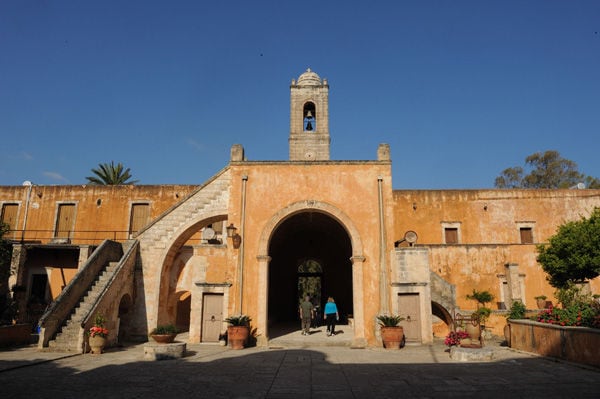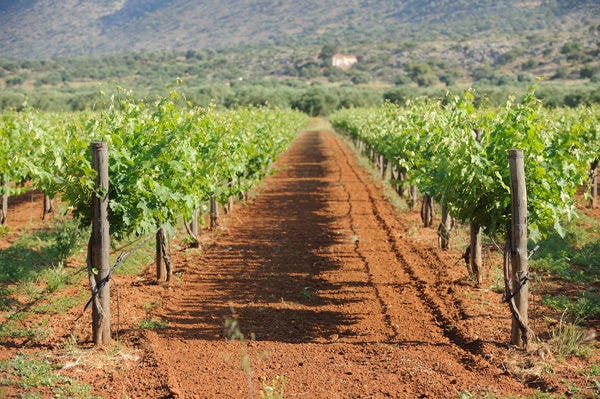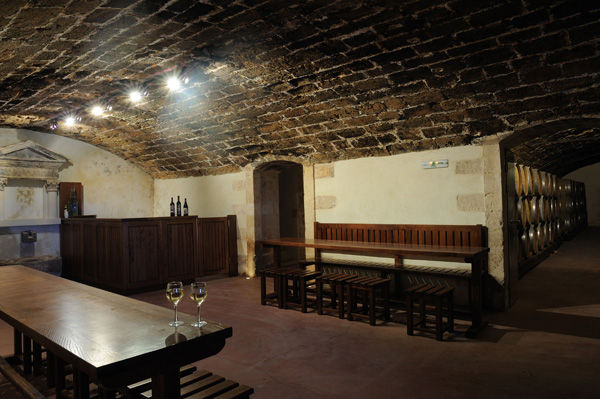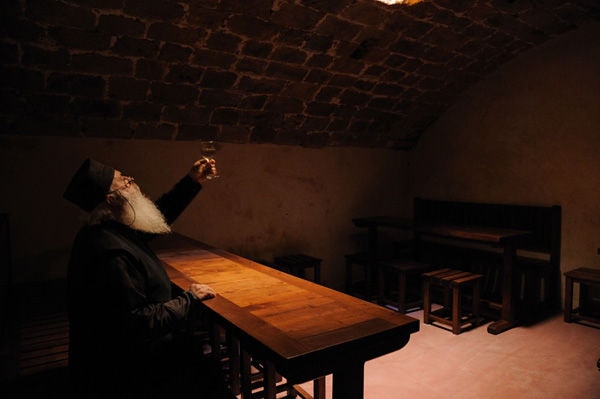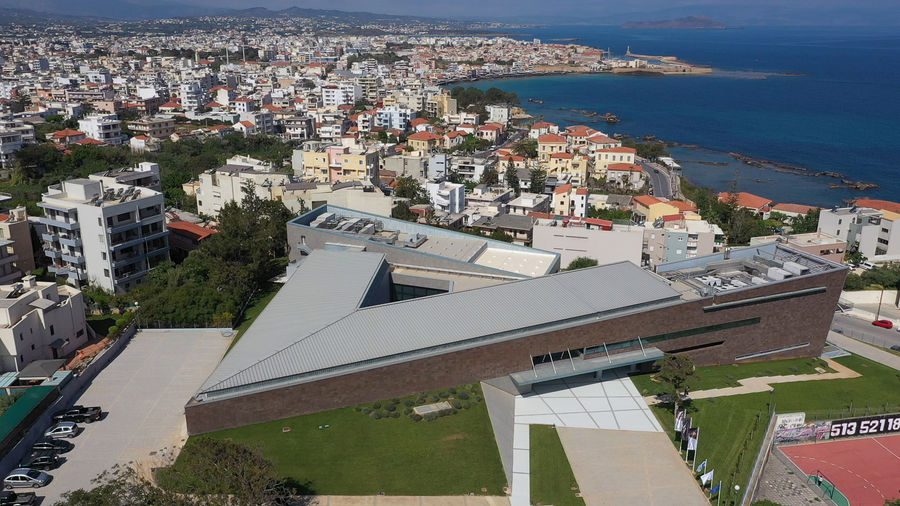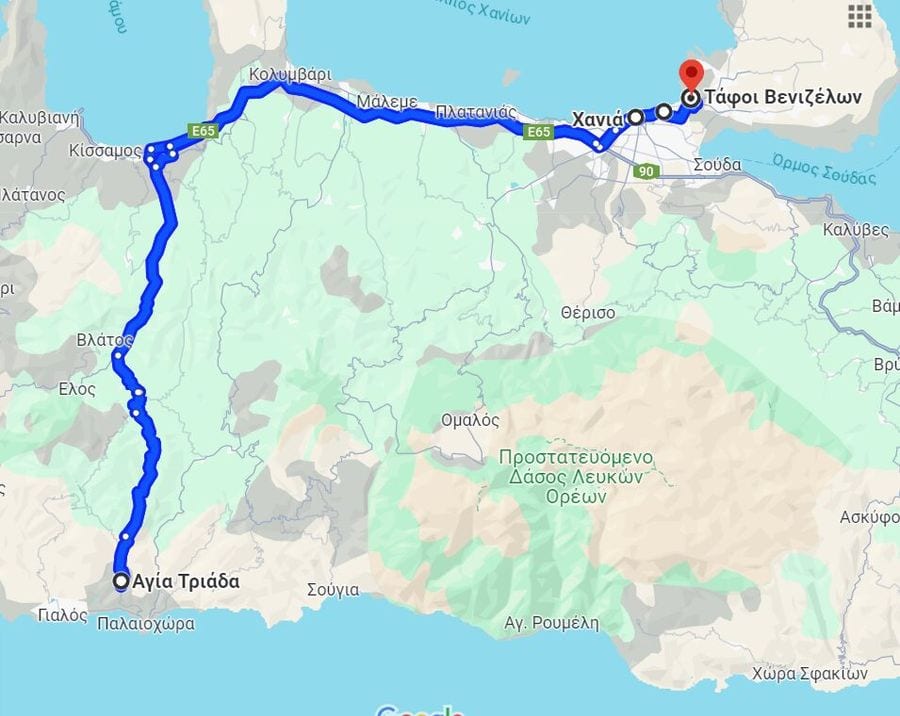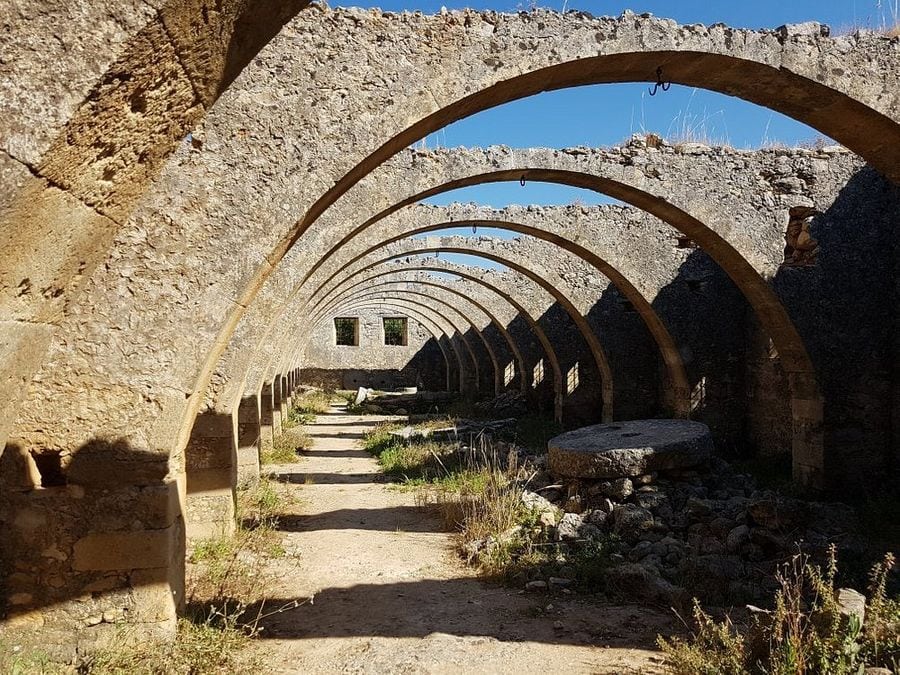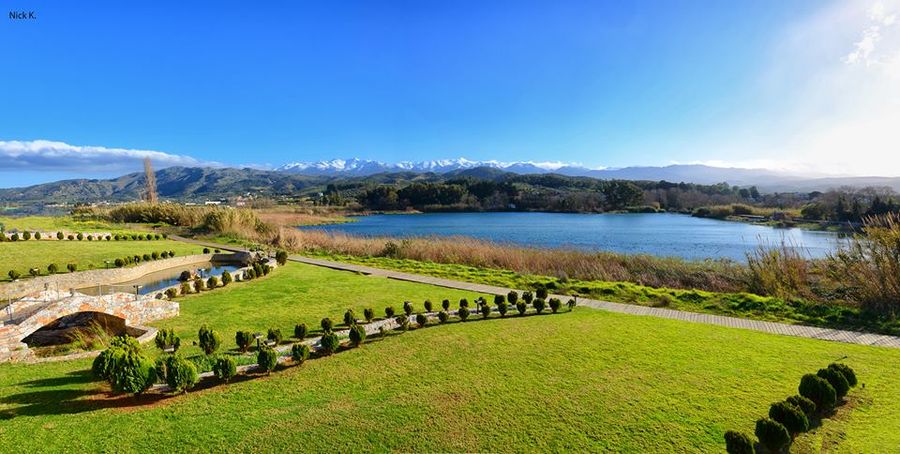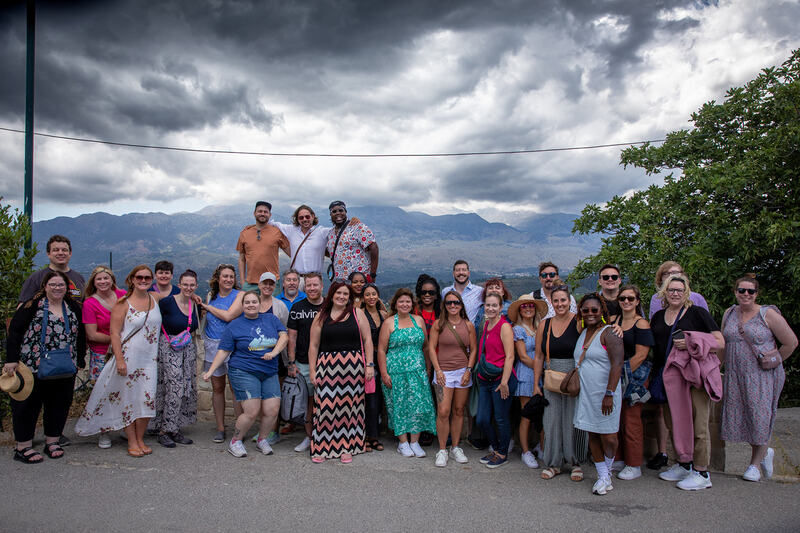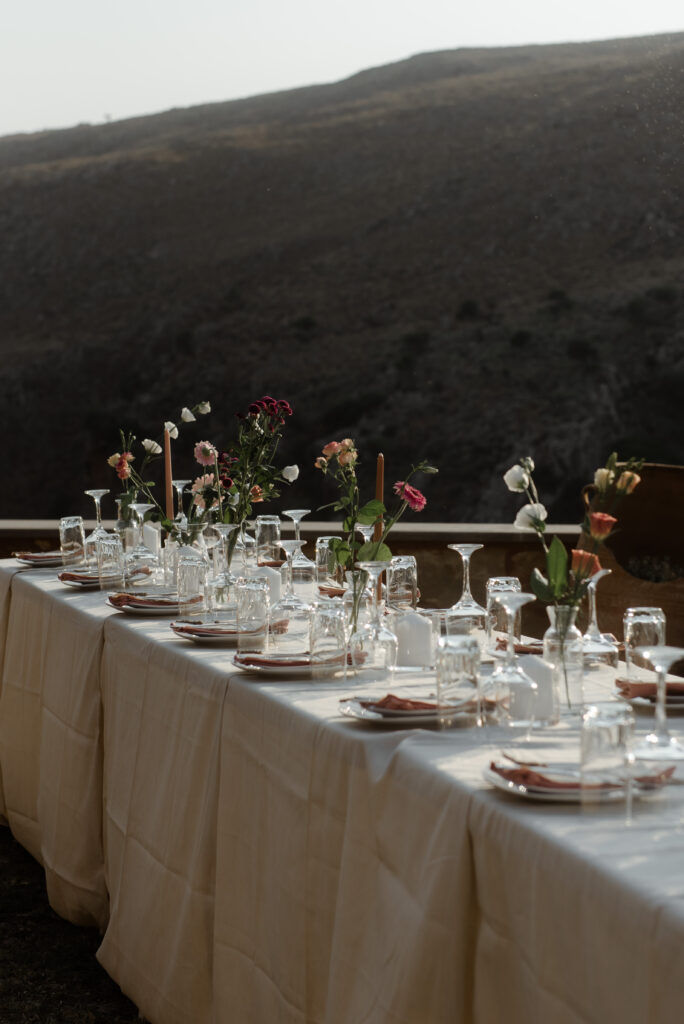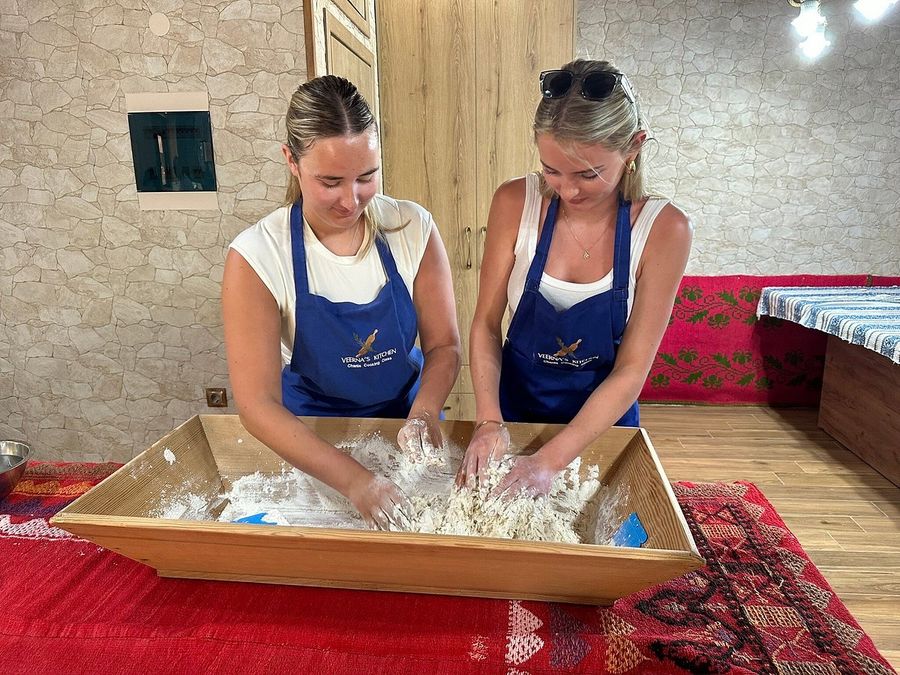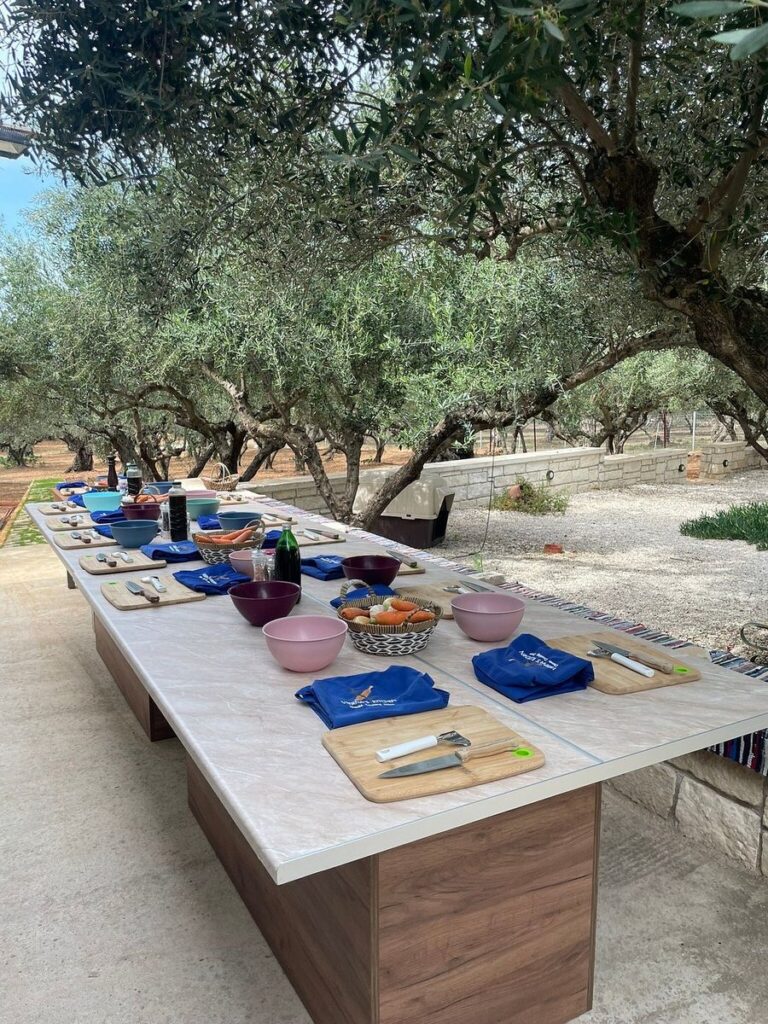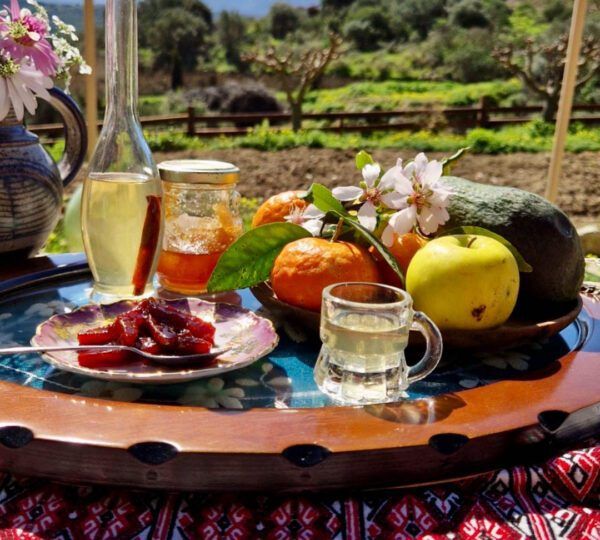Visit the Agia Triada Monastery, the Venizelos Family Graves, and the Archaeological Museum of Chania
Journey Through Chania’s Cultural Tapestry

Duration

Availability

Guided Tour

Overnight Stay

Active Months

Bio Products
Bio Products

Toilets
Toilets

Accessibility
Accessibility

Tasting
Tasting

Dining Services
Dining Services

Retail Shop
Retail Shop

Pet Friendly
Pet Friendly
Transfer Service
Transfer Service
Description
We are a family business with multiyear experience in transfers. We can guarantee your safe, comfortable and timely transport. Our main characteristics are our friendly environment, respect and discretion. The safety and comfort of our passengers are our commitments to every customer.
ACTIVITY DESCRIPTION
This is a 5-hour tour of Chania, allowing you to see some cultural and gastronomic aspects of the region.
The Monastery of Agia Triada
The Monastery of Agia Triada stands as a significant monastic complex from the late Venetian era, continuing to play a crucial role in Crete’s religious and economic life. The monastery’s origins trace back to a smaller predecessor in the same location. In 1611, the Venetian authorities of Chania entrusted the reconstruction to Hieromonk Jeremiah Tzagarolo. Influenced by the 16th-century Italian architect Sebastiano Serlio, Tzagarolo designed and initiated the construction of a larger monastic complex.
Following Tzagarolo’s death around 1634, his brother Lavrentios, a monk, took up the task. Unfortunately, the project was halted in 1645 during the Ottoman occupation of Chania, and the monastery became known as Selvili Manastır during this period.
The monastery faced adversity during the 1821 revolution when it was set ablaze by Ottoman forces, destroying numerous relics. Nine years later, Ottoman authorities granted permission to complete the church, and in 1864, the bell tower was erected. From 1892 to 1905, the monastery operated as a seminary. During the 1896-97 revolution, it served as a hospital and rebel headquarters.
Amidst the Second World War, the Greeks initially used the monastery for storage, and later, in 1942, the Germans established the School of Anti-Aircraft on the premises after the occupation of Crete.
The historic Monastery of Agia Triada of Tzagarola is renowned not only for its rich tradition but also for cultivating fine grape varieties that contribute to the production of the famous excellent wine associated with the monastery. With centuries of dedication and modern expertise, the monks skillfully craft a unique blend of grape varieties perfectly accustomed to the microclimate of the Akrotiri region in Chania.
Wine Tasting at the Monastery of Agia Triada
The monastery’s winery offers a delightful opportunity for wine enthusiasts to indulge in a tasting experience. The monks’ dedication and expertise in winemaking are showcased through a unique blend of grape varieties cultivated in the Akrotiri region’s favourable microclimate. Visitors can savour the rich tradition and flavours associated with the monastery’s renowned wine, appreciating the centuries-old craft passed down through generations.
Visit of the Venizelos Family Graves
The Venizelos graves, the final resting place of the charismatic Greek politician Eleftherios Venizelos, a seven-time Prime Minister of Greece in the mid-20th century, are situated within a captivating park adorned with a pine forest. The graves provide a mesmerizing panoramic city view of Chania, establishing this serene setting as one of the city’s prominent attractions.
The historic 16th-century church of Prophet Elias further enhances the appeal of this location. The church played a role in the last Cretan revolution of 1897 against the Turks, with the Revolutionary Camp of Cretans camped at this site. On February 9, 1897, clashes between the Turks and Cretans commenced, marking a pivotal historical moment as the Cretans raised the Greek flag at Froudia.
Continuing its historical journey, the church underwent renovations in 1899 under the sponsorship of Tsar Nicholas II of Russia and received its last repairs in 1936. Alongside the iconic gravesite, these landmarks contribute significantly to the cultural and historical allure of the region. The blend of natural beauty and historical significance creates a unique and enriching experience for visitors exploring and appreciating the rich heritage of this remarkable site. Coffee shops around can provide an excellent opportunity for a small break.
Visit of the Archaeological Museum of Chania
The Archaeological Museum of Chania comprises two distinct linear masses emerging from the earth, symbolically referencing the remnants of civilization beneath the ground. Constructed to meet international standards and designed according to the fundamental principles of public buildings, it stands as a city landmark, providing a breathtaking panoramic view of the city, particularly the seafront.
The permanent exhibition showcases the extensive archaeological heritage of the Chania regional unit throughout history spanning from the earliest human presence in Chania to prehistoric settlements and historical cities. The exhibited artefacts shed light on various aspects of social and administrative organization, religion, entertainment, war, and trade.
The daily life of past civilizations is vividly portrayed, offering glimpses into their occupations, homes, furniture, utensils, toiletries, burial customs, and attitudes towards death. To enhance the visitor experience, the exhibition employs specialized representations, digital media, and two tables featuring tactile exhibits with braille captions. This thoughtful approach enriches the documentation of the collection, ensuring an engaging and memorable visit for all patrons.
The Archaeological Museum of Chania stands as a testament to the region’s rich history, inviting visitors to explore and appreciate the multifaceted layers of its cultural heritage.

